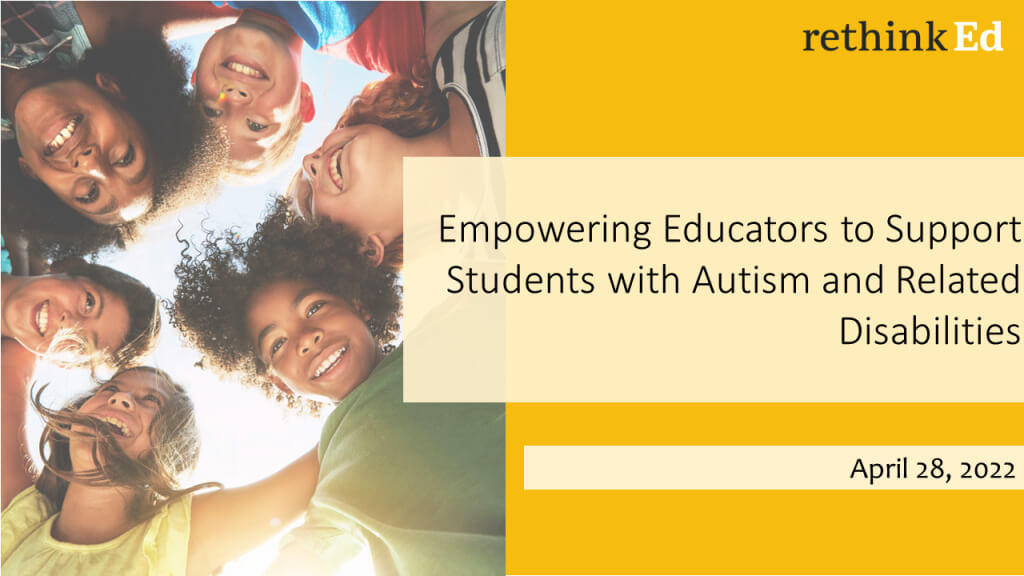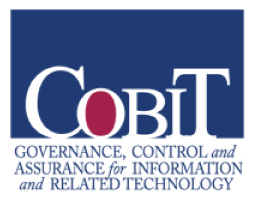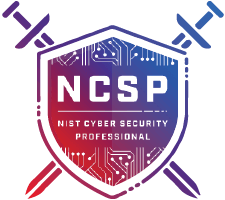Panelists
Houston ISD
- Dr. Charlotte Fontenot (Senior Manager for the AU, Behavior, and Intensive Intervention Team at Houston ISD) (Contributing Faculty for Walden University)
- Anthony Jones (Manager for Intensive Intervention Services Team in the Office of Special Education Services)
East Baton Rouge Parish School System
- Adam Smith (Associate Superintendent)
- Tracy Smith (Autism Program Facilitator)
Moderated by
- Angela Pagliaro (Vice President of Educational Partnerships at RethinkEd)
In this webinar, 2 districts shared their insights regarding the RethinkEd Highly Qualified Specialist (HQS) model for training a variety of education staff in Applied Behavior Analysis (ABA) and Social Emotional Learning (SEL). The HQS model was designed to develop highly-trained special staff to accelerate student learning, create a positive impact on classroom climate, and build capacity for long-term success. The model includes 10-15 people per cohort and includes:
- Access to on-demand professional development
- Completion of approved coursework for Registered Behavior Technician (RBT) certification
- Live bi-weekly professional development communities focused on effective practice and application of new knowledge
- Bi-weekly coaching office hours for all participants
- Qualified and experienced instructors – work with Board Certified Behavior Analysts (BCBA’s) every week
Value of HQS model – why make the investment?
- Need for better education and training not only for teachers but for paraeducators, program specialists, and other staff.
- Need to target self-contained and general education inclusion classrooms.
- Need for on-demand training to accommodate busy schedules.
- Need for tools to address increasing behavior challenges and decreasing disciplinary actions.
Making staff feel valued – incentives for participation
- Extra duty pay or stipends for completion of program and/or for putting in after-school hours.
- Including leadership and administrators in training.
Short-term impact of HQS model
- Already seeing a lot of progress and positive feedback from participating staff.
- Increased knowledge and confidence in staff resulting in more meaningful engagement for students – have learned the value of ABA and how to apply it.
- Staff have begun applying what they have learned in the classroom with success – staff bought in quickly when they saw the value.
- Now it is not just the teachers with the knowledge but the support staff also.
- Increased confidence of staff and more pro-active and less re-active responding.
- Decreased behavior referrals and staff getting better at keeping student in the classroom and having more ownership over student behavior.
- Example 1: One staff person said that although they knew about the ABC’s (Antecedents, Behavior, Consequences), they did not understand how it worked but when they went through the RethinkEd training, they learned how to use it in the classroom and it worked to reduce certain challenging behaviors in the classrooms.
- Example 2: One of our technicians was able to successfully apply ABA skills to do a task analysis for a student and break a complex task into smaller increments with set breaks, self-monitoring, and a timer.
Longer-term expected outcomes of HQS model
- Better student engagement and decreased behavior challenges.
- More positive and productive classroom climate.
- Improvements in emotions, academics, and behaviors for students.
- District-wide buy-in and implementation.
- Training for general education teachers, campus administrators, and other staff.
Additional supports for staff working with students with autism and related disabilities
- Sensory labs where students can go in to de-escalate and self-regulate. Includes ball pool, star lamp that lights up on ceiling, various chairs to sit or rock, and other sensory activities.
- Multi-disciplinary team that supports staff with more challenging behaviors.
- Collaboration with community organizations for needs assessments and programming.
- Model classroom that demonstrates how to set up an effective, productive, and positive environment.
Parent engagement
- Special education parent advisory group to provide trainings to parents.
- Choose topics that are relevant and meaningful to families (e.g. transitions, sensory issues).
- Summer camp offering parent training while paraeducators work with students.
Engaging general education teachers
- Opportunities for general education and special education teachers to work collaboratively in instruction and behavior planning.
- Provide more opportunities for all students to work, learn, and play together with general education teachers.
- Offer more training and education in autism and behavior to general education teachers.
- Foster a climate where all students are considered general education students first, even though some of them need special services.
- Support more severe behavior challenges with supports and training.
Trauma-informed care for students with autism and related disabilities
- Utilize resources from mental health, SEL, crisis management team, and wrap-around services.
- Create a safe space for the student and reach them where they are that day.
- Increased trauma-related issues have been seen in both districts and both are prioritizing meeting the needs of these students.
RethinkEd provides training for general education teachers to support students with disabilities.
For more information on how RethinkEd’s ABA Specialist Pathway can support your district, and to watch the webinar recording visit our Empowering Educators To Support Students With Autism And Related Disabilities landing page.










